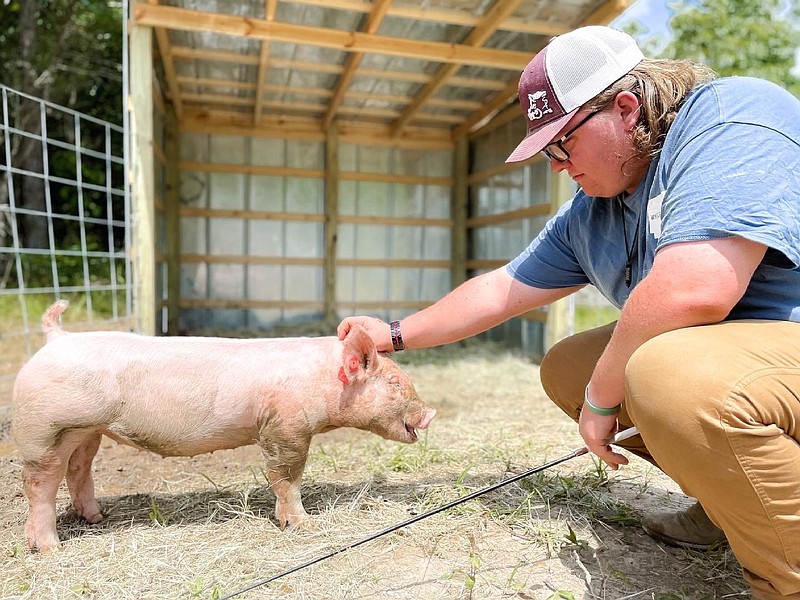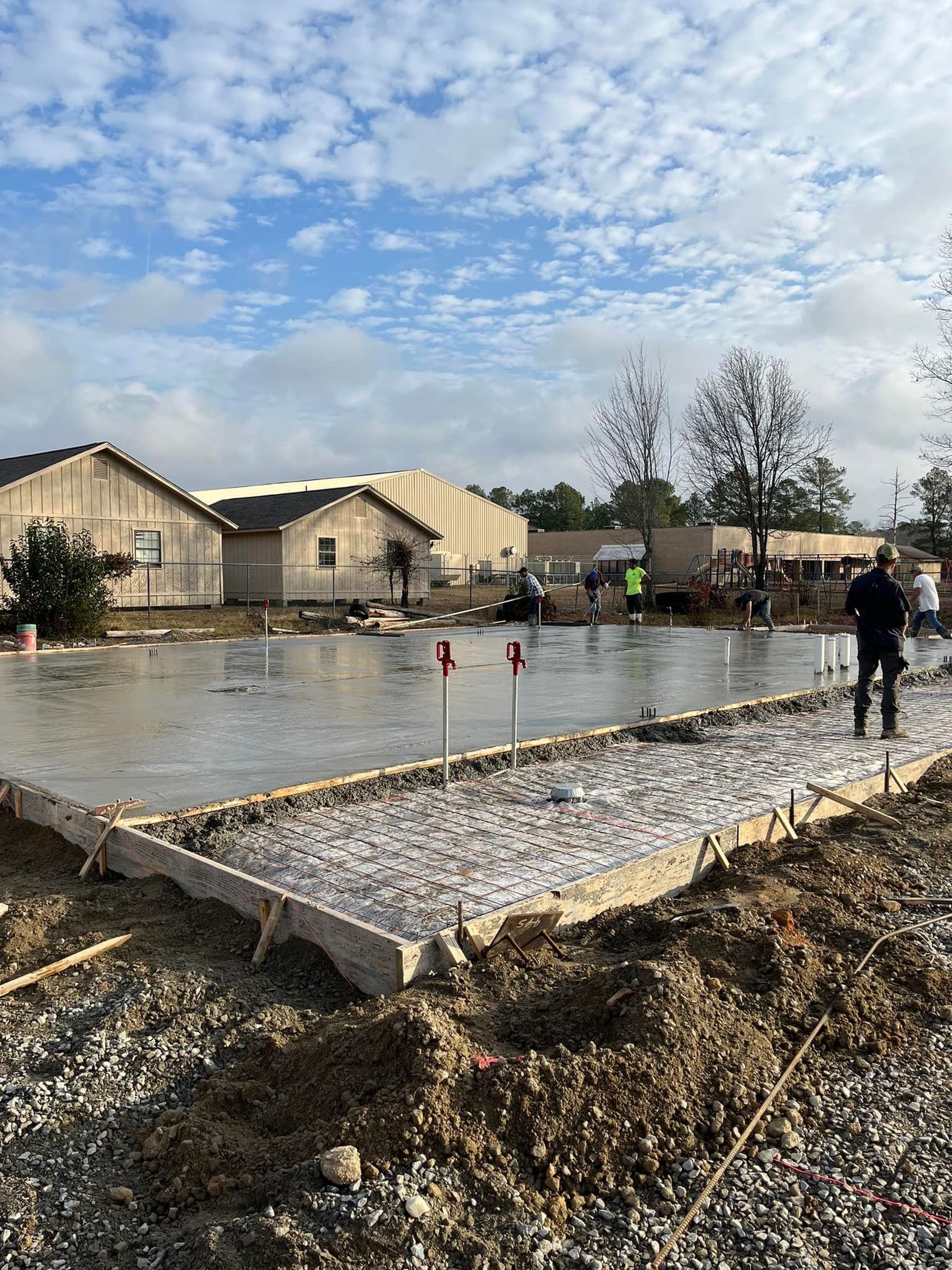Editor's Note: With a focus on gardening and animal husbandry, White Hall High School is expanding its agricultural offerings to its students in various ways with the goal of setting students on a lifelong career path. This is the first story in a two-part series that examines the school's three-year-old program, its rapid growth and its future.
While the construction of the new fine arts and multipurpose buildings are taking center stage at White Hall High School, the school's agriculture department is also expanding its on-campus footprint to meet student demand.
Not only has the ninth-to-12th grade agricultural class enrollment more than doubled since the program began three years ago, but of the estimated 950 students, about 200, or more than 21%, are participating, said Doug Dorris, White Hall School District superintendent.
In response, the school district decided to invest about $150,000 in a 2,000-square-foot stand-alone building to house part of the program. It's been dubbed "The Barn."
Also, a second agriculture teacher was added, and currently, the entire program is located inside the high school.
The agriculture department-dedicated space is already under construction and should be move-in ready by about June 1.
"This will not be a traditional classroom setting," Dorris said.
INSIDE THE NEW FACILITY
After the building is complete, a $38,000 Arkansas Department of Education grant will pay for the construction of pens for small farm animals such as goats and lambs, said Kisia Weeks, agriculture teacher and Future Farmers of America student adviser.
Besides the animal stalls, the grant will provide for the purchase of weight scales, an animal washing station, some medical supplies and equipment and more.
In addition, Weeks said, the school has an FFA grant for $1,200 to build pens to raise hens.
Already students are working with animals off-campus through FFA, but Weeks' students are also raising vegetables in their on-campus hydroponic gardens.
The water gardening program got its start during the 2019-20 school year with a $500 grant from the Arkansas Department of Agriculture's State School Garden program.
"The kids run it all," said Weeks, who also teaches welding and conservation. "They're excited about it. It's a good learning tool. It teaches students to be innovative and creative."
The same goes for animal husbandry, Weeks said, adding that she feels the new facility will benefit the students.
HANDS-ON CONSTRUCTION EXPERIENCE
Dorris said that, not only are students learning about animal and plant care, but Agriculture Department mechanic students are involved in The Barn's construction.
They're shadowing and helping licensed professionals during plumbing and electrical installation, for example.
"They helped with the foundation. Not only do they see how it's done but it's a first step in learning a trade," Dorris said.
GROWING A CAREER
"We now have a strong agri-program. It's a great opportunity for students," Dorris said.
This is especially true for students who are considering working in the industry or considering a degree in agriculture, as well as those who haven't yet decided on a career but are exploring their options, Weeks said.
According to the Arkansas Farm Bureau, agriculture is the state's largest industry, worth about $16 billion annually.
Farming is important in southeast Arkansas especially in the areas such as rice, corn and fish production, and Dorris said many of the White Hall students are considering agriculture as a degree or a career.
A number of area institutions of higher learning, such as the University of Arkansas at Monticello and University of Arkansas at Pine Bluff, offer exceptional agriculture-related degrees, Dorris said.
Mike McCall, Catfish Journal publisher and the author of "Catfish Days," said, "UAPB's fisheries and aquaculture program has served southeastern Arkansas well over the last 30 years. With agriculture being southeast Arkansas's largest industry, the college contributes significantly to the area's economic well-being."
As well, Dorris said, "UAM is a popular choice for many students."


